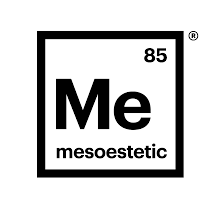Damien, a medical Doctor from Antigua, came to Cosmetic Courses to pursue his career in aesthetics. After completing almost every course on our training programme, here he talks about the benefits of aesthetic training for Doctors and reflects on his time with us.
Tell us about your professional background
I’m a young businessman and qualified medical Doctor from the Caribbean. I’m currently working in the field of tourist/travel medicine, but preparing to move into aesthetics.
Why did you decide to train in aesthetics?
I was introduced to the idea by a friend who had a keen interest. As I was about to visit the UK to pursue some training in travel medicine, I decided to make the most of my time here and train in aesthetics too. I realised it was a virgin market back home, so there was a great opportunity to capitalise on it.
What attracted you to Cosmetic Courses?
I searched online and Cosmetic Courses was the company that most impressed me. There were a few others I looked at, but they didn’t seem to be very organised, and didn’t offer all the information I was looking for. You guys had thought of everything.
How many other providers did you consider?
I actually had my whole office looking! I think there were about 6 different firms. That was shortlisted to 3, then shortlisted to 2, then you guys won.
Which courses did you attend?
There are so many! Technically it’s all of them except for Lower Face Botox and Microsclerotherapy.
What did you think of the quality of our training?
Marvellous. The trainers are very experienced. I liked the fact that because they’re treating people in their practice every day they were able to tell you “do this, do that, don’t do this” and would also explain why. I feel it’s given me the confidence to make my own judgments and decisions as to the best approach to take with my patients.
What’s the biggest benefit of aesthetic training for Doctors?
Networking. Since training, my network has grown tremendously. I feel very well equipped to move into this exciting new industry.
Do you feel confident to pursue this in the future?
Absolutely.
Compared to other courses you’ve attended, how would you rate our training?
High up, very high up!
What are the next steps following your training?
Getting a business plan in place first. Then I’ll be talking to my investors, securing some finance – and making some money!
Where do you see your practice in 3 years time?
Hopefully by then I’ll have managed to spread to about 2 or 3 other islands.
Would you recommend Cosmetic Courses’ aesthetic training for Doctors to your colleagues?
Definitely!
Cosmetic Courses, led by Consultant Plastic Surgeon Adrian Richards, is the UK’s most established cosmetic training provider. For more information on aesthetic training for Doctors, please contact our team.











